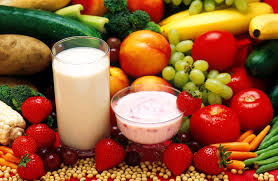Today, 1 billion people in the world have regular access to an improved drinking water source. If this does not bother you, by 2025, you might be one of them. The U.S. Government Accountability Office wrote in a 2014 report that 40 of 50 states anticipated a freshwater shortage within 10 years. For many, this prediction is already coming to fruition.
California has received national attention as it experiences one of the most severe droughts in its history, but it is not the only state with strains on its water sources. Two weeks ago, the director of the Colorado Water Conservation Board said western states are in the midst of a 16-year drought. Unless something is done, the world’s natural water supply will be hard-pressed to support not only its human population, but also the balance of its ecosystems.
This is a “now” problem, and we are far from making much progress on solving it. Considering that 80 percent of freshwater use in the U.S. goes toward agriculture, it is obvious where we need to focus our efforts. Though broken infrastructure and poor agricultural practices contribute significantly to this number, we do not need to leave it to our government to solve. One kilogram of meat requires 100 times the amount of water needed to produce 1 kilogram of grain protein, so just eating a little less meat can have a huge impact.
This is especially true for Americans, who consume more than three times the global average yearly intake of animal proteins. This is not only detrimental to the environment, but is also a health concern, as meat is linked to cancer, obesity and heart disease. Cutting back on meat can cut costs as well because meat — especially organic or cruelty-free — is becoming more and more expensive due to our proclivity for purchasing high-quality meats.
Plus, meat-free options are becoming pretty damn delicious. If you have never had a veggie burger, you are missing out. There is more texture, more flavor and more variety than an actual burger. “Plant butchers” are making meat replacements that look and taste like real meat. David Chang — the creator of Momofuku who used to put pork in every dish specifically to piss off vegetarians — now has a test kitchen totally dedicated to producing vegan options. He explained in an interview with Vox founder Ezra Klein that there is a movement toward vegetarian because it is unsustainable to eat meat in a way that is inexpensive and ethically responsible.
It is true that there is very little we can do as individuals to reduce our impact on the planet. If one person cuts out all animals and animal byproducts, they might protect one cow from the chopping block. But if we all stop eating meat once a week, that is a revolution.
Emily Shwake is a senior English major. She can be reached at eshwakedbk@gmail.com.



